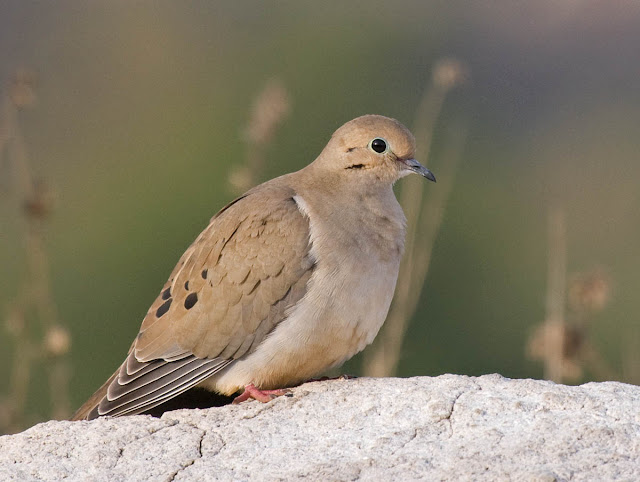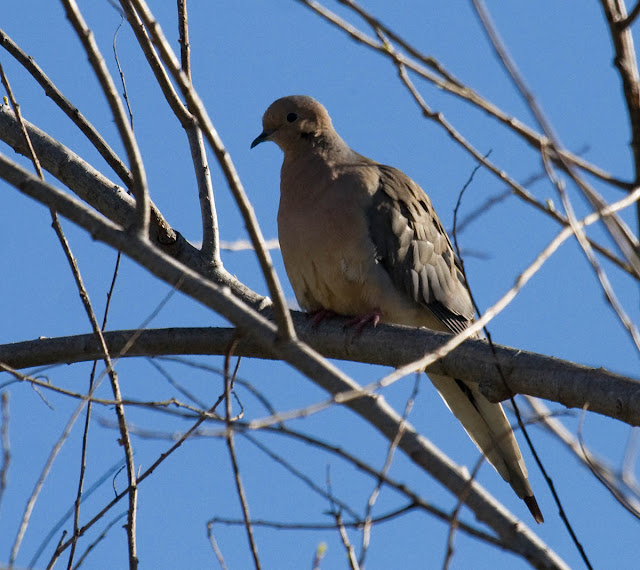 |
| Mourning Dove. Lake Hodges, California. December 1, 2013. |
My thinking is: "I've already seen most of the birds on the trail I was just on. My chance for additional species seems higher to me on a different trail than to repeat the one I was just on."
So, when you start your birding walk and come to that fork in the loop path, which path will you take? If you say: "It's a loop; it doesn't matter," you would be wrong from a birding fieldcraft perspective.
The question is this: Do you want to glory in the beautifully colored birds lit warmly by the morning light? Or do you want to be squinting and see mostly silhouettes? I want you to think like a photographer now: point your shadow at the bird!
The sun rises in the east, more or less. In the northern hemisphere it rises in the northeast in spring and the southeast in winter. At dawn (and winter) the sun is low. If you start your birding by traveling east you'll be looking directly into the sun. However, if you start your loop by heading in a westerly direction first, looping to the right to the north, you'll start and stay in good light. Later, when you have to loop around toward the east and south, the sun will be higher, and less in your eyes.
So that's my advice to you. When you start your birding loop in the morning, choose to head off in a westerly direction first, then clockwise.
The difference can be night and day,... compare the first photo with this one:
 |
| Mourning Dove backlit. San Elijo Lagoon, California. March 1, 2017. |

No comments:
Post a Comment
I really want to hear from you! I've changed settings (again) in order to try to make commenting easier without opening it up to spammers. Please note, however, that comments to posts older than 14 days will be moderated. Thank you.